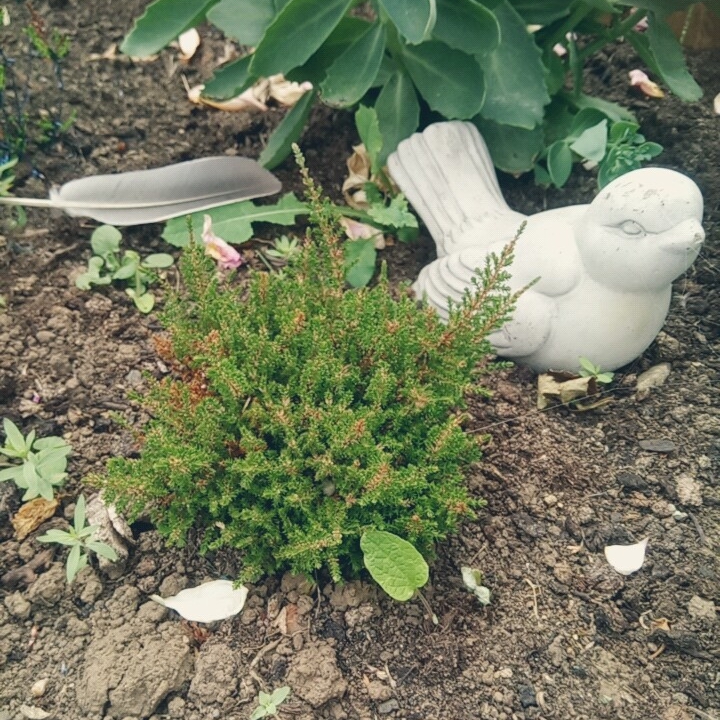
Calluna vulgaris 'Fred J. Chapple'
Common Heather 'Fred J. Chapple'
Heather is a low-growing perennial shrub growing to 20 to 50cm tall and found growing naturally across heathland and moorland and oftenin acidic pine and oak woodland across Europe. Flower colours range from white to purple and occasionally red. The flowering season differs among cultivars and extends from mid-summer to late autumn in the northern hemisphere. The flowers eventually turn brown but remain on the plants over winter. 'Fred J. Chapple' is an attractive plant producing colourful new foliage in spring with hues of pink, copper and red and bearing lilac pink flowers in late summer.
Contributed by @steadysgirl7
-
Full sun
-
Occasional watering
-
Full Frost Hardy: 5F (-15°C)
-
Moist and free draining
Common name
Common Heather 'Fred J. Chapple'
Latin name
Calluna vulgaris 'Fred J. Chapple'
type
Shrub
family
Ericaceae
ph
5.0 - 6.5 Acid - Neutral
Plant & bloom calendar
-
Best time to plant
-
When the plant will bloom
full grown dimensions
 0.30 M
0.50 M
0.30 M
0.50 M
Calluna vulgaris 'Fred J. Chapple'
Heather is a low-growing perennial shrub growing to 20 to 50cm tall and found growing naturally across heathland and moorland and oftenin acidic pine and oak woodland across Europe. Flower colours range from white to purple and occasionally red. The flowering season differs among cultivars and extends from mid-summer to late autumn in the northern hemisphere. The flowers eventually turn brown but remain on the plants over winter. 'Fred J. Chapple' is an attractive plant producing colourful new foliage in spring with hues of pink, copper and red and bearing lilac pink flowers in late summer.
Planting young plants
From Early Spring TO Late Autumn
Plant from early to late spring or during autumn. Set the plants deeply so that the whole of the stem is buried and the foliage rests on the soil. On dry soil, add peat round the roots.
Propagation by cuttings
From Mid Summer TO Late Autumn
Cuttings should be taken from mid-summer to late autumn. Use young side shoots, 1 - 2 inches long with or without a small heel of old wood. Insert into pots of moist, well drained rooting medium such as a mixture of two parts sharp sand and one part acid peat. Root the cuttings in a mist propagator. Hormone rooting compounds are not necessary.
Flowering Season
From Mid Summer TO Early Winter
The flowering season with different cultivars extends from mid-summer to late autumn. The flowers may turn brown but still remain on the plants over winter, and this can lead to interesting decorative effects.








